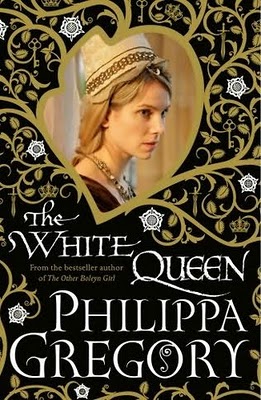
Book Review – The White Queen by Philippa Gregory
The White Queen by Philippa Gregory
Review by Jessica Dall
To start, a disclaimer, I’ve always had a bit of a weakness for Philippa Gregory. While there might be some critiques to be made about her writing (namely how much leeway she seems to take with the “unknown” parts of historical stories) I have always thoroughly enjoyed her writing style and her through research means that things that are a part of historical record are very accurate. The White Queen is no exception to any of that.
The first book of Gregory’s The Cousins’ War series, The White Queen follows the life of Elizabeth Woodville, the York queen during the War of the Roses. Falling in love with King Edward IV, not long after his assentation to the English thrown, Elizabeth finds herself entangled in war and politics in the real life Game of Thrones where even family can’t be trusted.
As always, Gregory’s writing is skilful. Even making the switch to writing in the present tense, something that is uncommon enough to often be jarring, Gregory manages pull the reader in to Elizabeth’s world. Combined with the inherent intrigue and tension of the York court, the nearly 600-page book moves quickly, becoming the kind of story one does not want to put down.
Likewise, Gregory’s characters are well developed and relatable. Though there are characters meant to be more likeable than others, nothing in The White Queen is black and white. Well-known villain, Richard York (to be Richard III) alternates skilfully between dark and sympathetic, likeable Elizabeth Woodville becomes shriller, understandably morphed by the cut-throat court. Rather than a world of good guys and bad guys, Gregory’s York court is a world of three-dimensional, changing people that, if anything, make the plot that much more interesting.
If there is any criticism of The White Queen, it is a common one for Gregory’s books. As she is well known to do, Gregory once again stretches the unknown a little further than might be wise, pushing readers’ suspension of disbelief where historical record falls short. The most jarring example, perhaps, is the Woodville belief that the family is descended from of a water goddess named Melusina. While this belief is not, by itself, a problem, Gregory has decided to assume, in her world, that his goddess connection is a fact. The Woodville women cast make predictions and cast spells that seem to eerily come true, and Elizabeth seems to have visions of events happening far away from her—a device that is often used to give readers scenes of battles Elizabeth is not present for while arguably staying in first person. This fantastical element in an otherwise purely historical novel is, at best, awkward. While not overdone (the effects of the “spells” could have come about on their own without supernatural intervention), the otherwise well-crafted sense of historical truth in the novel splinters, perhaps breaks for those unwilling to suspend their disbelief enough to believe Elizabeth Woodville had supernatural powers.
Still, despite what seem to be some small missteps, The White Queen is a highly enjoyable, intriguing read that somehow manages to make 600 pages feel short. Luckily the characters will continue on in the other The Cousins’ War series books, including The Red Queen (released June 2011) and The Lady of the Rivers (released April 2012).
The White Queen (2010) is available in ebook, audiobook, and hardcopy from Touchstone Books.
